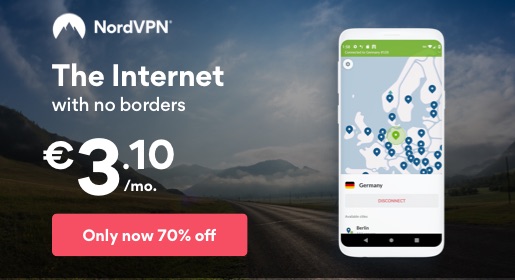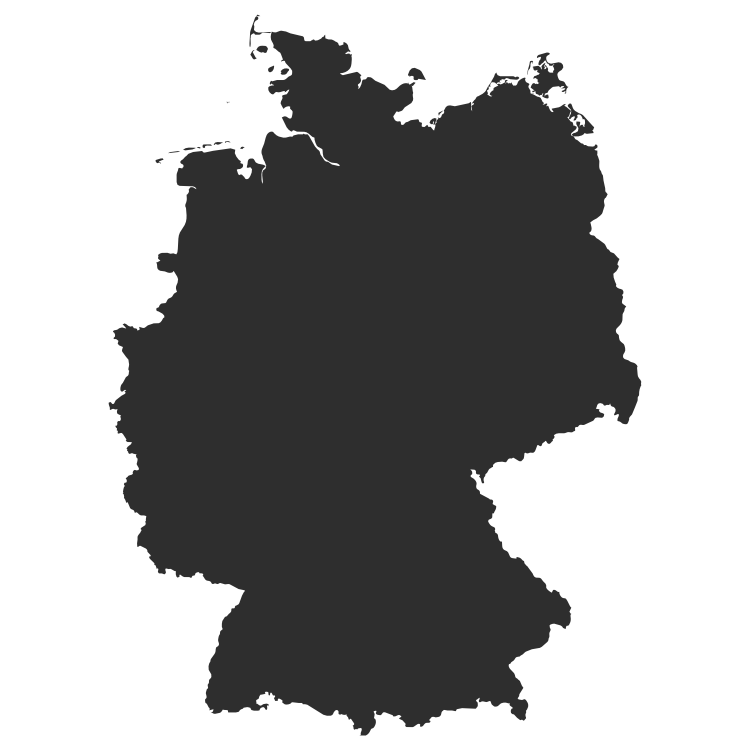
For non-EU/EEA nationals, it’s essential that you understand the visa and residence permit requirements to migrate to Germany for work or career reasons before you make any further plans. It may well be that your goal to live in Germany is not attainable based on your current circumstances.
In most cases though for well-qualified applicants who can support themselves, there is usually a means available to you, if you’re prepared to be a bit creative.
This article will guide you through what is possible, what may be possible, and what’s definitely not possible!
Germany Visa and Germany Residence Permit Options Explained (for non-EU/EEA citizens)
Table of Contents
The Basic Criteria Checklist
What’s the difference between a German visa and residence permit?
Residence for highly skilled employees: EU Blue Card
Standard Residence Permit for employees
Do I need to speak German?
Finding a Job in Germany: How do I do this from abroad?
Residence Permit as a Freelancer
Starting a Business in Germany: Self-employment and Entrepreneurship
Residence Permit for Students
Residence Permit to Learn German
Residence Permit to complete Vocational Training
Germany Visa – entering the country without a residence permit
Job Seeker Visa
Schengen Visa
D Visa
Can I move to Germany for retirement?
Does Germany offer citizenship by investment?
The Basic Criteria Checklist
To obtain a residence permit, in very simple terms you will need to satisfy one or more of these criteria:
- Have a job offer
Or:
- Be able to convincingly prove that you can run and sustain your own business or succeed as a freelancer.
Or:
- You qualify through other means, such as being the spouse of a German citizen, or having the right to citizenship through ancestry.
Or:
- Are accepted into a German university or higher education institution, or into a language school to learn German in Germany.
Or:
- Are pursuing vocational training to enable recognition of qualifications to facilitate employment in Germany
If you don’t fall into one of these categories, then it’s unlikely you will be able to migrate to Germany in the immediate future. You’ve got some work to do, either to up-skill and become more employable, or to rethink your strategy of moving to Germany and how you’re going to do it.
We don’t cover asylum and refugee status in this article.
What’s the difference between a German visa and residence permit? (Important!)
We need to look at the difference between the a visa and a residence permit, before looking into the details of the different ways you can obtain each of them.
A visa is a temporary travel document for a specific purpose i.e. tourism, business or job seeking.
A residence permit is a legal right to live in the country, be that on a temporary or permanent basis.
Sometimes the words are used synonymously, but there is a very distinct difference.
The best example of this is the commonly used term of “German freelancer visa”. In reality, this is a temporary residence permit for the purpose of self-employment through freelancing. It grants you a legal right to reside in Germany for a specific term.
“Freelancer visa” is the term everybody uses, but it’s a residence permit, not a visa.
German Residence Permit for highly skilled employees: The EU Blue Card
The EU Blue Card is a pan-European scheme which offers a fast track route to permanent residency for those who tick the necessary boxes.
To obtain the EU Blue Card to work in Germany, you must satisfy ALL of the below criteria:
- Be qualified to degree level (minimum bachelors)
- Have a formal job offer or a signed employment contract that is relevant to your field of studies.
- An annual gross salary of at least €56,800 (in 2021)
- This is relaxed to a minimum of €44,304 (in 2021) for professions where there are recognised worker shortages. Examples are IT professionals, scientists, doctors, mathematicians and engineers. However, this requires prior approval by the German Federal Employment Agency before a Blue Card is granted under these circumstances.
The benefit a Blue Card gives you is that after 33 months you are granted permanent residency (subject to a number of additional criteria being met). This shortens to 21 months if you can prove that you speak German to B1 level.
Don‘t confuse PR with citizenship, which carries a whole different set of criteria.
Our recent article covers in much more detail all you need to know about the EU Blue Card.
Reference: §18(b) of the Act on the Residence, Economic Activity and Integration of Foreigners in the Federal Territory
Standard Residence Permit (Aufenthaltserlaubnis) for Gainful Employment
What if you don’t fulfil the criteria necessary to be eligible for a Blue Card?
You can obtain a standard, temporary Germany residence permit (Aufenthaltserlaubnis) on grounds of obtaining gainful employment
In plain English, it means you need to have a job offer.
BUT: Unlike the EU Blue Card, you don’t need to prove minimum salary, nor do you need an academic degree to qualify.
The recent changes to the immigration law which came into effect in March 2020 reformed the previous requirements. Before this, the employer had to first attempt to hire a German or EU/EEA citizen before offering a job to a non-EU candidate.
This is no longer the case, although the Federal Agency for Employment may perform checks in certain instances that the salary and working conditions are equivalent to those which would be offered to German workers and EU nationals.
Employers can’t exploit this law to hire cheaper labour from overseas.
Candidates must be qualified to perform these jobs, usually either by:
- means of the relevant trade certifications, or;
- an academic qualification
This could potentially require recognition of equivalency by the appropriate German body responsible for checking qualifications gained outside of Germany.
Reference: §18(a) and §18(b) of the Act on the Residence, Economic Activity and Integration of Foreigners in the Federal Territory
Do I need to speak German?
German language skills are not a prerequisite to obtain a residence permit if you have a job offer.
HOWEVER:
If you don’t speak the language, then it’s going to make your job search extremely difficult.
UNLESS:
- You’re experienced in a profession where there are skills shortages
- The role you’re performing is a back end, non-customer or client-facing role.
Otherwise, you’re going to struggle.
Why?
Because, well, think about what’s in it for the employer. Why should they hire YOU specifically, when they can hire plenty of other candidates who speak the language and don’t need a residence permit?
You may have a better chance of getting hired, despite lack of German skills, if you have work experience and qualifications to perform one of these 13 roles, for example.
It’s certainly possible, and many before you have succeeded. But you’ll need to look harder and have a very strong strategy of how you’re going to do it.
Finding a Job in Germany: How do I do this from abroad?
For both the EU Blue Card and the Standard Residence Permit, you need to have a job offer.
Neither of these options are available for you to come and seek employment without having a job already secured.
So, how do you find a job, you’re probably asking?
A good place to start is our jobs page, where you can search directly through the Live Work Germany website. We’ve also covered the top 10 job websites and job portals in Germany too, so as you’re not wasting time looking on irrelevant sites.
Finding English speaking jobs in Germany is not as easy as you probably think. They do exist, but you will need to work harder and smarter than the many other people competing for them if you are going to succeed.
There are many more candidates than there are jobs. Therefore highly recommended that you learn some basic German, to distinguish yourself from the pack.
We created a short quiz which you can download for free to give you some honest feedback of how attractive you are to potential German employers.
Definitely spend a valuable 10 minutes taking a long, hard look at your employability first.
What if you have already applied for some jobs but are struggling to get invitations to job interviews?
Your CV and cover letter are likely the problem. Getting some professional help to get these looking like the German standard will be the best low cost investment you can make to boost your chances of being invited to interviews.
We’ve also covered the common mistakes many foreign jobseekers make when putting together their applications for jobs in Germany, to give you a heads-up of what you need to correct.
Job Seekers - Boost your chances of success!

Looking for a job in Germany?
You need to have a stellar CV, cover letter and optimised LinkedIn profile.
Your international format CV won't cut it. Cover letters in Germany are also an art.
Our templates and my coaching for job seekers like you will help you to get more interviews!
Residence Permit through becoming a Freelancer in Germany
Freelancing is a great and relatively straightforward (although bureaucratic) way to to obtain a German residence permit.
Normally you have to apply from country of residence. This is done through making an appointment at the German embassy or consulate.
Citizens of the following countries are treated as exceptions, and may apply for this residence permit in Germany after entering the country on a standard 90 day visa-free stay:
- Australia
- Canada
- Israel
- Japan
- South Korea
- New Zealand
- USA
It’s therefore especially attractive to native English speakers from developed countries, especially if you don’t yet speak any German and would otherwise struggle to find employment in the local German economy.
You’re typically required to supply the following documents as part of your residence application to be a freelancer:
- Business plan
- Proof of income already gained in this capacity
- Client references
- Portfolio of work
- Evidence of prior experience
- Proof of funds to independently support yourself
- Letters of intent from German businesses who have expressed an interest in contracting your services
Note that this is the minimum required when applying for a freelance / self-employment residence permit from within Germany.
Various German consulates and embassies across the globe may require additional documents when applying through them. Check in advance with the German diplomatic mission in your country of residence before making an appointment or submitting your application. Each country is different.
Our online course covers the complete process for obtaining a residence permit as a freelancer or sole trader in Germany, with all of the common pitfalls and watch-outs. Trying to figure all of this out for free is playing Russian roulette with your plan for a new life in Germany.
Reference: §21(5) of the Act on the Residence, Economic Activity and Integration of Foreigners in the Federal Territory
Starting a Business in Germany: Self Employment Residence Permit and Entrepreneurship
There is a very subtle but vital difference in Germany between the status of self-employment and freelancing.
This will also impact the time it takes for your residence permit to be issued.
While freelancer residence permits are usually approved and issued quickly – sometimes on the same day as your appointment in Berlin for example – anyone who falls under the self-employment category will usually be waiting 3-4 months for a response.
This is true both for solopreneurs and startup founders alike.
Reference: §21(1) of the Act on the Residence, Economic Activity and Integration of Foreigners in the Federal Territory
Sole Trader
Sole traders will have to submit a comprehensive business plan, detailing all of the capital investment required, revenue projections, client acquisition strategy and analysis of the existing marketplace.
Letters of intent from clients aren’t necessary, but otherwise the requirements other than the business plan are similar to what is required for freelancers.
Is there a German Visa for Entrepreneurs?
There isn’t an explicitly titled Entrepreneur Visa or Entrepreneur Residence Permit.
In reality though, startup founders or established businesses who want to expand to Germany would simply apply through the self-employment residence permit route.
The major difference between being a sole trader and being a growing business that employs people is that you will almost certainly need to form a limited liability company (Gesellschaft mit begrenzter Haftung, or GmbH for short).
Here, I’m afraid you will rub up against the infamous German bureaucracy.
In more business-friendly countries, setting up a company can be done online, in a few hours, and with little starting capital. Germany is different and sadly, much more old-fashioned.
You’ll need €25,000 of starting capital in most cases and the patience to spend some times filling out forms and dealing with notaries.
Residence Permit to Study in Germany
We cover the whole process of how to apply to German universities and other higher education institutions separately.
During your studies, you are also legally entitled to work for up to approx. 18 hours per week.
The major advantage of studying in Germany is that upon successful completion of your studies, you can stay for 18 months in order to seek work, provided you have the necessary funds to support yourself.
Other than being accepted on a course and having the necessary language skills (dependent upon the language of tuition), you will also need to prove you have sufficient funds.
Students from certain countries will also need to open a blocked bank account as part of the visa application too.
Residence Permit to Learn German
It’s pretty straightforward to obtain temporary residence to learn German in Germany.
The added advantage is that while you’re in the country, you can also scope out the jobs market and seek out part-time employment to supplement your studies.
Just like being a student, you can work for approx. 18 hours a week
This falls under the umbrella of being a full-time student and, as such, you will need to comply with the same criteria when it comes to proof of funds to support your living expenses.
You will also need to be enrolled in a recognised and accredited school. The ones that are will all state this on their websites, so be sure to look for this!
Of course, we would recommend learning basic German for free first, and then taking an online course, for example from our friends at smarterGerman to get to intermediate standard. It’s WAY cheaper than travelling to Germany to enrol in a language school!
The obvious advantage of being in the country though is that you can apply for jobs and attend interviews much more easily!
Reference: §16f of the Act on the Residence, Economic Activity and Integration of Foreigners in the Federal Territory
Residence Permit to complete your vocational training
if you’ve gone through the qualification recognition process and you’ve only received a partial recognition for your foreign qualifications, you have the option to obtain a residence permit to come to Germany and complete the missing piece of your vocational education.
This can be done either through on-the-job experience leading up to an exam at the end, or formal classroom tuition. It is highly dependent upon the trade.
You may also work up to 10 hours per week in employment not related to the work experience or training associated with the qualifications you are pursuing.
Reference: §17a of the Act on the Residence, Economic Activity and Integration of Foreigners in the Federal Territory
Germany Visa: How do I enter the country if I don’t have a residence permit?
Should you apply for jobs from your home country, or travel to Germany in anticipation of attending interviews?
If you’re based in a European country already and if you have a Schengen visa, it’s feasible to attend job interviews in Germany at short notice.
However, if you’re currently living on the other side of the world, clearly this is not so simple. We covered this dilemma for jobseekers from India, but the same logic applies to most third country nationals. We just chose India because we have a lot of Indian readers!
Let’s take a look at obtaining the different types of visas for Germany, to enable you to enter the country
The Job Seeker Visa
This visa allows job seeking candidates to enter and reside in Germany for 6 months for the very purpose of looking for work.
You need to be well prepared and have a thorough strategy though. Otherwise, it could be a very expensive lesson learned in how finding a job in Germany is not as easy as you think.
Who is this visa for?
- Nationalities which can’t enter Germany for 90 days visa-free.
- Qualified, experienced job seekers in skills shortage professions, who stand a good chance of finding work within 6 months
- German speakers (if you don’t have a degree)
- Those who have the financial means to stay in Germany for a 6 month period while looking for work
Who does this visa not benefit?
- Unqualified / unskilled workers seeking casual work
- Inexperienced recent graduates looking for their first job after finishing their studies
- Anyone who can’t speak German and doesn’t have a university degree
The Job Seeker Visa must be applied for in your country of residence, typically through your local German consulate or embassy. The exact set of documents and processes required may slightly vary between the different consulates across the world.
We cover both what you need to have to apply for a job seeker visa, as well as the topic of whether or not it’s worth applying for, based on your own individual circumstances.
Before committing thousands of Euro to spend 6 months in Germany with absolutely no guarantee of a job offer, you definitely should do your homework and have a robust strategy of how you’re going to approach your job search.
Reference: §20 of the Act on the Residence, Economic Activity and Integration of Foreigners in the Federal Territory
Schengen Visa (short-term stays)
If your country is not on the list of nations which do not require a visa to enter Germany, then you will need to apply for a business or tourist short-stay Schengen visa to enter the country.
The information on the German foreign office website states the following:
- The purpose of the trip to Germany must be plausible and comprehensible.
- The applicant must be in a position to finance his/her living and travel costs from his/her own funds or income.
- The visa holder must be prepared to leave the Schengen area before the visa expires.
- Documentary evidence must be provided of travel health insurance with a minimum coverage of 30,000 euros valid for the entire Schengen area.
D Visa (longer-term stays)
If your stay is longer than 3 months for the purpose of employment, studies, or job seeking, then you will need to apply for a Type D National Visa through your local diplomatic mission in your country of residence.
This will then be converted into the applicable temporary residence permit (Aufenthaltserlaubnis) at your local office for the affairs of foreign nationals (Ausländerbehörde) in the German city where you take up residence.
You may only apply for a residence permit from within Germany itself if you’re a citizen of these countries, and enter Germany on the 90-day visa waiver as a tourist:
- Australia
- Canada
- Israel
- Japan
- New Zealand
- South Korea
- USA
Can I move to Germany for retirement?
Not unless you’re an EU citizen, or you’re able to migrate to Germany as a citizen through ancestry, or on a spousal residence permit.
Germany is not South East Asia or Latin America. Its immigration requirements and objectives are very different.
The Germans are seeking to increase their economically active population.
They’re not looking to import more retirees than they already have!
Even if you can cover your living costs and health insurance, there isn’t an option to move to Germany as a retiree.
Does Germany offer citizenship by investment?
No, Germany doesn’t have a citizenship by investment program.
But can you get residency in Germany through investment?
Yes. However, you can’t just rock up, invest in real estate or put a million in the bank and expect to have the red carpet rolled out.
What you can do is become a resident of Germany by starting your own business. This also includes investing in ventures that benefit the local economy. Everything around entrepreneurship we’ve covered in the self-employment section above.










